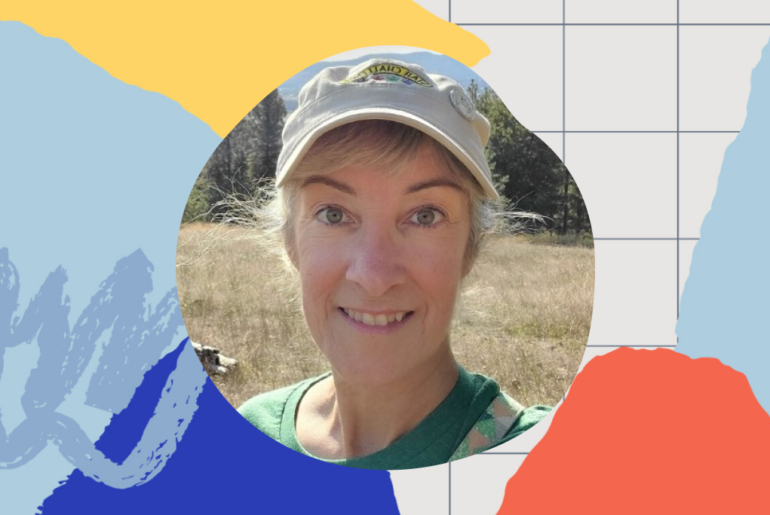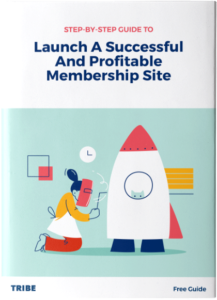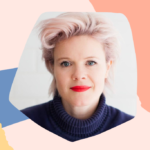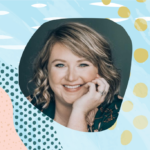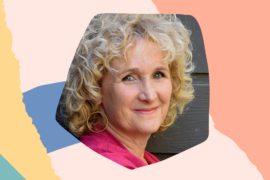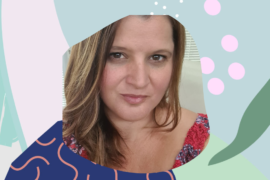Lisa Breitenfeldt launched a business selling geocaching equipment in 2005. Ten years later, she had a line of products and some success, but lots of competition. Instead of continuing to chase sales and new products, she asked her mailing list what they might want out of a box subscription – and got the feedback that transformed her business.
Now, at Cache Advance, Lisa sends her members a fun box of geocaching and awesome outdoor gear each month. She’s scaled her business to nurture her very best customers while massively reducing her workload and de-stressing her life.
Today, Lisa joins the podcast to tell the story of how she coped with her niche becoming rife with competition, built a new business to the exact specifications of her best customers, and stopped chasing sales for good.
Key Takeaways
- How Lisa built a unique business in the early 2000s – and what happened as her category became less unique and competitors began to take her market share.
- What Lisa did to design a perfect membership for her already-established audience.
- How Lisa is expanding on her current membership business to upsell and serve her best customers in new and exciting ways.
- What Lisa is doing to offer multiple memberships without exhausting herself or her audience.
Free Give
FREE Guide – Launch & Grow a Profitable Membership Site
Ready to reclaim your time and attract more monthly paying customers? Our step-by-step guide will show you how to build a membership site that turns your passion into recurring profit. Click here to download!
Memorable Quote
- “I just needed to be one step ahead of what they wanted and each time that we would get together, just draw them along. That was really it. So, keep it simple.”– Lisa Breitenfeldt
Episode Resources
Transcript
Read The Transcript
[INTERVIEW]
Shelli Varela: Lisa Breitenfeldt, welcome to the It’s a TRIBE Thing Podcast. How are you?
Lisa Breitenfeldt: Well, thank you so much. I am honored to be here. I’m doing well. Thanks. How are you?
Shelli Varela: I’m doing great and we’re honored to have you. And I love the chat we are having because in the membership industry many people talk about, “Well, I’m not really sure if I should start this membership or that membership because somebody is already doing it,” and there’s the common phrase, the riches are in the niches. And so, I love the niche that you’re in and I love what you’re doing. So, for those people who are saying they can’t do it here, there are somewhere else, you actually have more than one membership site. And before we get into that, I’m wondering if you will share with the audience sort of who you are, who you serve, and your backstory, how you got to be this person that you are now.
Lisa Breitenfeldt: Yeah, sure. So, I serve geocachers and geocaching is a high-tech hide-and-seek game. There’s a phone app to play it. It’s free to play. And so, people go out seeking geocaches that are hidden around the world. And it’s a super fun game. It’s been around since 2000. So, I started my business in 2005 as a product business, an e-commerce website to provide the gear to play the game. It’s where I got started.
Shelli Varela: That’s awesome. So, can you explain in a little bit more detail what geocaching is? So, my understanding and you can correct me if I’m wrong is there are treasures, I’ll call them treasures, different things that people have located in different like it could be in a forest, it could be in anywhere. And this treasure that somebody put somewhere is mapped on an app, is that right? And then the game is anybody in the world can play and you try and look for these things. And so, what would you find in them and where would you find them? And just for those people who are not familiar with geocaching at all, how does that work exactly?
Lisa Breitenfeldt: Yeah. So, other geocachers hide the cache containers. They’re usually like a Tupperware container or a hide-a-key box. There’ll be a logbook inside that when you find it, you sign that. And then if the container is large enough, there’ll be items that you can trade for, just Dollar Store kind of toys or occasionally there’ll be a special coin or something like that. Again, like you said, they’re hidden all around the world and they’re not like the painted rocks where you move them to a new location but you actually put them back where you found them. Yeah. So, it’s kind of like Pokémon in a way. A lot of people are familiar with how to play Pokémon but you’re finding real things in the real world. And it’s really grown up over the last 20 years to big communities and events. And, gosh, I even met my husband through geocaching.
Shelli Varela: Oh, no way. That’s amazing. Well, how many people are into geocaching just for the perspective of how big this actually is?
Lisa Breitenfeldt: Yeah, about 15 million people play the game. We’ve been growing since COVID hit because it is a fairly easy way to social distance if you’re able to get out of your house. So, we’ve been seeing a lot of new people joining as well.
Shelli Varela: That’s awesome. I want to talk about your memberships. But before we do, can you tell us sort of your journey? I know that you went to school. You’re going to the University of Washington. Can you tell us how you started over there and what it was about learning about geocaching and then pivoting? And the reason I want to share this with people is many times they will have that thing that they’re interested in. And they think it couldn’t be a membership site or it couldn’t be a thing and it’s easily overlooked yet still here you are doing the thing you love.
Lisa Breitenfeldt: Yeah, absolutely. So, back in 2000, I was working at the Washington State University. I was on the research faculty and also going to school full-time working on a Master’s of Technology Management and really looking for a way to get off campus because I was on campus 12 hours a day, practically, with working there and then going to night classes. And I grew up camping and fishing and backpacking with my family and I read an article about geocaching. I thought, “This sounds like a lot of fun. So, why don’t I give it a try?” And I fell in love with it and that was 2002. And then a few years later, I’m done with school and looking at my student loans, yeah, a master’s program isn’t always all that cheap, right? So, I was having lunch with a friend and we were just talking about what our next steps were going to be now that we’re out of school, and I said, “Maybe I’ll pick up a part-time job doing Christmas sales, retail or something so I can help bolster up my income.” but it’s really going to cut into my geocaching time. And she just said, “Well, Lisa, why don’t you start a whole new business? You’ve got that business degree around geocaching.”
And just right there, I actually visioned my first product, which was a cache repair kit, and did the research on it and saw no one else was doing anything like that. So, I launched. I made 100 of them and I sold them all within about two weeks
Shelli Varela: No way. That’s amazing. So, when you originally had this idea and you thought, “Wow, that’s a great idea,” and then realized nobody else was doing it, was that a point of excitement or a point of, well, maybe nobody’s interested? And walk us through kind of what that looked like in your head.
Lisa Breitenfeldt: Yeah. I was unsure, definitely. I got on the forums for geocaching and looked for what products were they wanting? It was such a new thing then that only been around for five years that there weren’t any real geocaching products. People were reusing like a Tupperware container. They’re stealing it from their kitchen, emptying out their junk drawers for the swag to trade, but nobody was really developing any products. And so, I did some internet searches and put together what I thought would be a good kit, something I would want to carry when I’m out there making repairs. It’s kind of first aid kit for Tupperware. So, that’s how I got that started. And I actually started on eBay because that was an easy platform and quickly sold out and realized I wanted to keep all the profits, not have to pay eBay all of that. So, that winter 2006 is when I started my own e-commerce website and then just started adding products from there.
Shelli Varela: That’s amazing. So, since that time, you have gone on to create a number of products around geocaching. Can you walk us through your box subscription and how that works? And then take us from there to the other membership sites you have.
Lisa Breitenfeldt: Sure. So, about 2014, 2015, I was 10 years into my business and I had a lot of competition. More and more people even though they were buying wholesale from me, they were also developing their own products. And some of my products that were unique to me, other people were then making and I was seeing sales were diving and it was getting harder and harder to make every sale. Just one more sale. I’m going to get one more customer and sell them one more thing. And I started thinking, “Well, I need a new killer product. What’s the next new thing for geocaching?” And I thought all of a sudden, what about a box subscription? Nobody is doing a geocaching box subscription and sending out gear and that recurring revenue was so exciting. So, I only have to get that customer once. And then as long as I’m keeping them happy, they keep on paying me. And so, I actually sent out a survey to my geocaching list. I think 700 people responded. And I asked them, “I’m thinking about launching a monthly subscription box for geocaching. What would you like in it? How often would you like it? How much do you want to pay? When do you want to get it every month?” And they told me.
And so, I literally built it right around that, all the answers that I got. And so, I was able to put out a product that people already wanted and were excited about because that also dropped the hint that I was going to be doing it. And I think I got 27 members, founders, that first month, and I’m close to 500 members now.
Shelli Varela: You’re kidding. That’s fantastic. So, I’m curious about this. When you sent out the survey because I always love like your members will tell you what they want, just give them what they want. But oftentimes people are set in what they think their members want. I’m just curious, when you had envisioned sending this box out at the very beginning, did the feedback they gave you was it in alignment with? Was it close to what you thought they were going to want? Or did you learn something new about your entire community?
Lisa Breitenfeldt: Not particularly. I’ve been serving them for some time. Ten years in already. I knew I wanted to have a higher price point than what people wanted to pay. And so, I did have to start lower dollar than I wanted to, to begin with, but looking back now knowing how to build a membership up, you start low, and then you offer really good value to where people really want to be a part of it and they’re willing to pay more for that. And so, that was probably like the main thing right there. Otherwise, it was just all the great ideas of what people wanted to be shipped to them in the box every month. They gave me all sorts of great ideas.
Shelli Varela: That’s brilliant. Just ask them a question and let them feed you the information.
Lisa Breitenfeldt: Yep.
Shelli Varela: So, from the box subscription, you are a membership guru and decided, “I’m going to have yet another membership,” but this one wasn’t a box subscription. Can you walk us through your thought process through that and how that unfolded for you? And also, just for everybody listening the high points of having each like a box versus a digital education sort of membership.
Lisa Breitenfeldt: Yeah, sure. So, about a year ago, I was getting ready, well, two years ago, again, I was seeing more and more or less and less customers coming in. I had a brick-and-mortar store as well. And so, that was dwindling but the cache crates were doing well but I wasn’t really growing it great at that time. And I thought, “Well, what about doing something digitally where I didn’t actually have physical product, cost of goods sold, where I could just do something once, I could reach many people?” And I knew the power of the recurring subscriptions and such so I thought about building a membership or maybe even teaching courses around how to geocache and/or how to geocache better for people that are already existing, already geocaching, giving them more tips and tricks. So, I started searching around for how to build a course and that’s when I ran into Stu and TRIBE back in 2019. And so, I learned of the Founding Member Launch. Cool. So, I did that and got about 25 members for the caching league and started working with them.
Then while I was going through TRIBE last of the summer of 2019, all of a sudden, I realized, “Wait a minute, I’ve got this box subscription. Maybe that’s a really low hanging fruit. So, let me focus on building that up and doing better there, while continuing to work with my founding members and I just push that launch back. So, I was going to launch April 2020 for the bigger public launch of the digital membership.” And so, I closed cart on the cache crates. I always had an open model and learned the power of closing the cart. And since then, I’ve more than doubled my membership. I was at 200 a year ago and I’m closing on 500 members now.
Shelli Varela: Incredible.
Lisa Breitenfeldt: Yeah. So, it’s been quite the ride growing that. Really, I only spend about four to five full days on the cache crates, on curating, unpacking what’s coming in, packing the cache crates, and getting them out. And I just have one helper that helps me with that.
Shelli Varela: And that’s four to five days a month?
Lisa Breitenfeldt: A month. Yeah. That’s about it.
Shelli Varela: So, what do you find like the high points of each? So, you have the digital one where granted you don’t have the overhead or you don’t have the stress. Is there one that you enjoy more or less? Or is it just a different kind of love?
Lisa Breitenfeldt: It’s just definitely a different kind of love. Yeah. The puzzle league, which I launched in the springtime, well, I had to do that pivot because of COVID. As I was saying earlier, I was going to do a public launch for the caching league and I decided to niche down to help just brand new geo catchers. And my plan there was to launch in April and then COVID hit, so I wasn’t able to – I just wasn’t comfortable sending people to go out and touching things, and a lot of people were contained at home where they couldn’t go out. And so, I partnered with a fellow who literally wrote the book on how to puzzle cache, which is how you solve geocaching puzzles at home before you go out geocaching. And that was so easy once we did it. I went back and watch the webinar series in TRIBE. We launched with a webinar and teaching people some of the basics. And he does all of the educating and does all of the lessons. And so, partnering with somebody really worked out well for both of us. He’s enjoying it and we got 150 members to founding members to join us last spring for that.
So, for me, that’s been very light and easy once we got through all the launch parts of it which so I know how to do that part of it, the launching, that Facebook ads, building that runway, although it seemed like a short runway, and then the membership side and then he does all of the teaching. Every month a new content shows up and the members love it. So, that’s been very light and easy for me not having to do the actual teaching because really that’s where I struggle is trying to be a teacher.
Shelli Varela: Well, you said something to me when we were chatting earlier and listening to your love of geocaching and the vast amount of experience, earlier you said you have to remind yourself that you’re an expert. And for all of those people listening, very rarely do we get to a point where we puff our chest out and say, “Well, I’m an expert.” And so, for those people who are listening, it’s important to realize that when you have expertise and again of varying amounts in an area, oftentimes, it doesn’t feel like you’re an expert. So, if you’re waiting to feel like an expert to take the leap, to start that membership site, you have a number of membership sites and have overcome that and have gone forward, and very few people I’m sure can say they have as much diversity in geocaching as you do. So, for all of those people listening, again, like don’t wait to feel like an expert to start moving.
The other thing I wanted to circle back on with you is your amalgamation of all of the things that you love. And again, for those people that are listening, always be paying attention for like what lights me up? What are the things that I’m good at? How do they fit together? Do they fit together? Because you have combined your love of geocaching and your experience from school and your love of camping and fishing and being outdoors. And you have made not just one but several membership sites out of the amalgamation of all of the things you love. How do you find balancing all of these different membership sites?
Lisa Breitenfeldt: That’s a great question. It’s challenging and I’m actually gearing up to launch my fourth membership too. So, what I try to do is I do what are called themed days. So, each day or half of a day, I focus on just one thing. So, I can really focus, turn off Facebook, unless I’m focusing on Facebook and dig into that. And I also have to really look far out into my calendar. Another one of the challenges is all of these multiple memberships. When am I going to launch or relaunch or open up again to do a flash sale? So, I’ve got to pace myself there. So, I’m not burdening my audience or burning them out with multiple things happening at one time.
Shelli Varela: Right. Totally makes sense. So, for those people right now who are listening to your story and thinking, “Wow. This all started with somebody sitting in a cafeteria and someone saying, ‘Well, why don’t you do the thing you love?’” but are thinking, “Well, I don’t know if a membership is for me or it seems overwhelming,” as somebody who now is running simultaneously multiple memberships, what would you tell somebody that has that thing on their heart that they love to do but or maybe doubting whether it’s possible or not for them?
Lisa Breitenfeldt: Yeah. Start simple. Again, that one thing that you love to do or that problem that you can solve for a group of people, when I did the Founding Member Launch for the Caching League, all I did was Zoom meetings with them. And then I recorded those and I put them on a free Google site and then we had a Facebook group. So, it was no cost and I just needed to be one step ahead of what they wanted, and each time that we would get together just draw them along. I seem to be one step ahead. That was really it. So, keep it simple. And if you believe that you can do something to help a group of people, go do it.
Shelli Varela: That’s great. That’s great advice, membership or not, right?
Lisa Breitenfeldt: Yeah.
Shelli Varela: If people are looking for you online, where is the best place they can find you?
Lisa Breitenfeldt: Probably either on Facebook. Cache Advance is my parent company, my main company. So, we just started a new group actually and I’ve got a page as well. And then Cache-Advance.com is my main website.
Shelli Varela: Awesome. Well, listen, we so appreciate you coming and sharing your expertise and your insight and all of your advice with our listeners. We appreciate you deeply.
Lisa Breitenfeldt: Well, thank you so much. Thank you.
[END]
To learn more and get access to all episodes, visit our podcast page!
